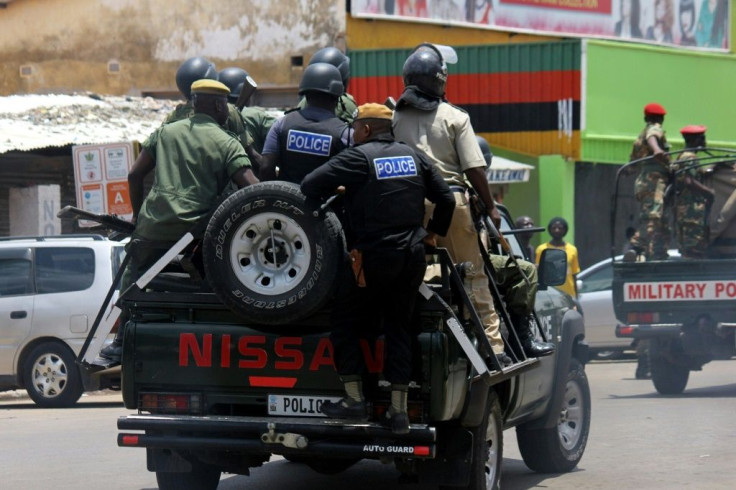Zambia Dazed By Wave Of Mysterious Gas Attacks

All the woman remembers before she passed out was an overwhelmingly pungent odour that suddenly filled her living room while she was watching television around midnight last month.
She managed to jump off the couch and peer through the window to see four men running away from her family's house in the Chawama township of Zambia's capital Lusaka.
Shortly after that the 27-year-old collapsed, becoming yet another victim of a wave of mysterious gang-related gas attacks that has sparked widespread panic in the southern African country over the last three months.
The gang had "sprayed the chemical through the keyhole", her brother told AFP, referring to a noxious gas used by gangs to immobilise victims before robbing or killing their targets.
Five of her family members who were sleeping in other rooms immediately woke up choking and weakened by the gas.
They were all rushed to a nearby clinic in Lusaka, where medics were already attending to 40 other people suffering similar symptoms.
The woman's brother requested that their names not be divulged due to the superstition that has surrounded the attacks.
Zambia been rocked by incessant gang attacks since December, and the fear and anger have led to local vigilante groups retaliating, rioting and even lynching suspected gang members.
The police have recorded at least 50 deaths from 668 cases of attacks and rioting, as well as making 566 arrests.
"The total number of people affected by spraying of chemicals is 1,946 and more than 50 people have lost their lives as a result of instant mob justice," police chief Kakoma Kanganja said this week.
President Edgar Lungu told parliament on Friday that the attacks have subsided.
"In the last three months our country has been under attack from unknown people," he said.
"I would like to warn the enemies of our people that soon they will be crashed and buried," Lungu told lawmakers.
"Regrettably, my government is aware that some traditional leaders, church leaders and civic leaders have directly or indirectly instigated these attacks."
Vice President Inonge Wina has labelled the gangs "terrorists" trying to stir "civil strife" and "destabilise the government".
The leader of the main opposition United Party for National Development, Hakainde Hichilema, has denied any involvement in the attacks, accusing the ruling Patriotic Front of using them to target political rivals.
"We are not part of this, we have nothing to do with this gassing," Hichilema said.
A known supporter of the ruling party, Kabaso Mulenga, is among those arrested and is facing murder charges. He has previously posted pictures of himself posing in military uniform and brandishing a firearm.
Mulenga lives in the Copperbelt town of Chingola -- the epicentre of the attacks -- where the assailants were superstitiously linked to ritual killings.
At the peak of the attacks last month, alarmed citizens turned to social media, where frenzied posts fanned the panic.
Some civilians took the law into their own hands, delivering what they considered instant justice to suspected gang members.
In one recent incident, a group of about 15 vigilantes lynched a suspected gas attacker in Zingalume, an informal settlement of Lusaka.
Meanwhile the victims of the gas attacks remain deeply traumatised.
Builder Steven Zulu and family were attacked on February 8.
"We realised that our home had been gassed when my wife and children woke me up saying they were having problems breathing," he said.
When he woke up he his whole housed reeked of "battery acid," he told AFP, "and within a few minutes, we were all choking."
When he approached his neighbours for help, he found that they too had been attacked.
"It was terrible and we all had to go to the clinic," he added.
The gas attacks prompted the US embassy in Lusaka to issue a security alert last month saying that "rumours of ritualistic killings and residential gassings have led to incidents of civil unrest and vigilante justice in multiple provinces throughout the country."
Police have meanwhile advised evangelical pentecostal churches to desist from conducting overnight prayers to avoid attacks.
Lungu said he is "seriously" considering constituting a commission of inquiry into the attacks.
© Copyright AFP {{Year}}. All rights reserved.





















